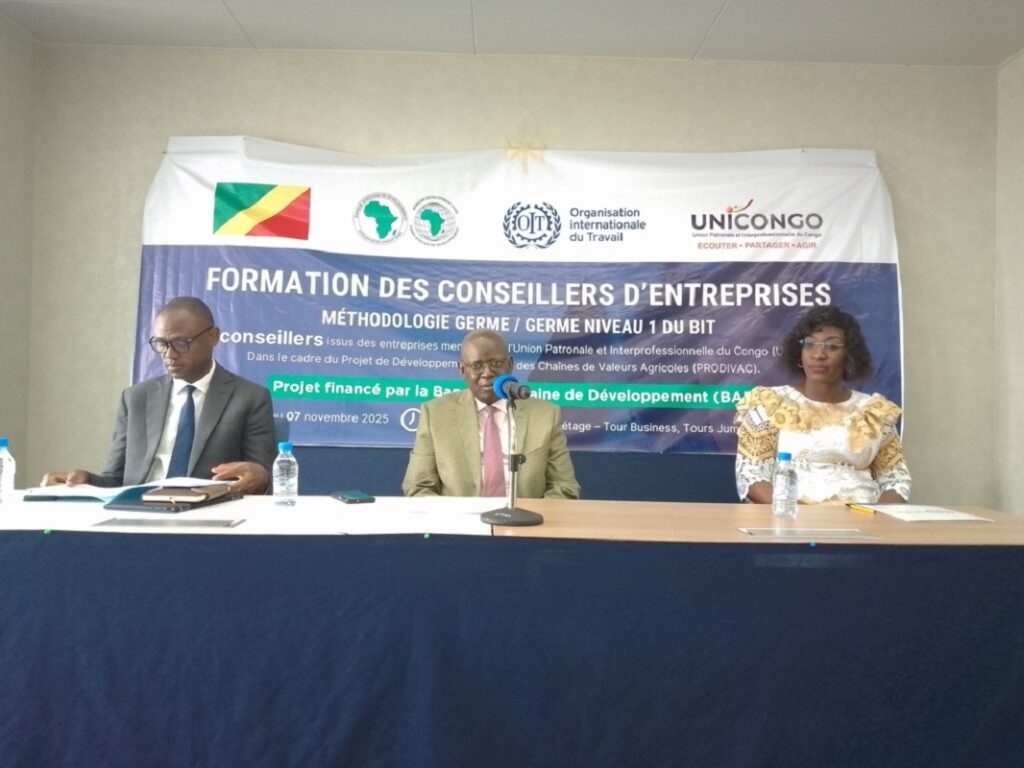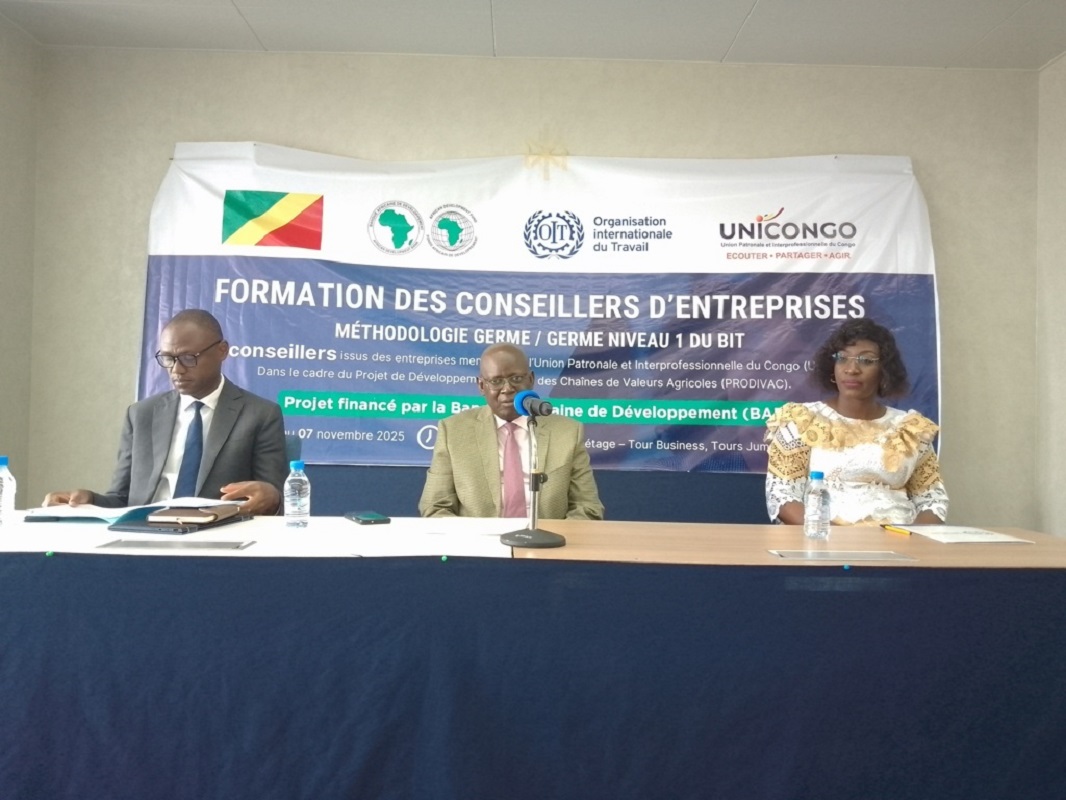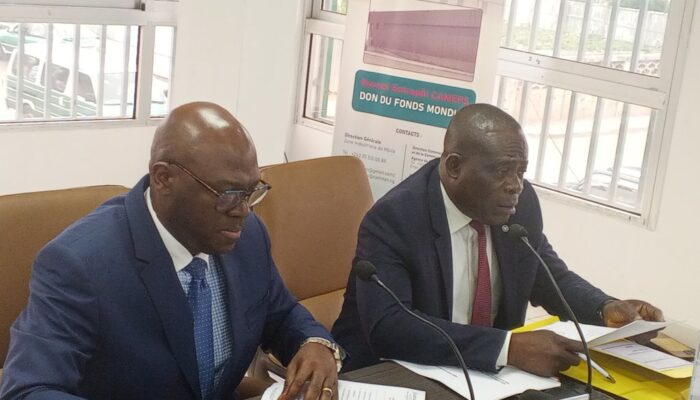At the initiative of the International Labour Office (ILO) in partnership with the Ministry of Agriculture, Livestock and Fisheries and the Integrated Development Project for Agricultural Value Chains (Prodivac), twenty business advisors who are members of the Interprofessional Union of Private Sector Workers are strengthening their business management skills.
The training began on October 29 in Brazzaville and will continue for ten days. It is a continuation of the Prodivac program and aims primarily to equip private sector stakeholders with proven educational approaches so they can become effective drivers of local economic transformation. These agricultural advisors will enhance their knowledge of the “Better Manage Your Business” (Germe) Level 1 module, ensuring the sustainability of their businesses, which remains a major challenge for entrepreneurs.

“This training contributes to strengthening the strategic axes of the national employment policy, so as to offer better prospects to entrepreneurs. It comprises two phases. The first consists of strengthening the skills of trainers in facilitation and adult training techniques, the use of Germe modules and tools on business management. The second will focus on coaching,” explained Gloria Oket Ondako, coordinator of the International Labour Organization (ILO) for Prodivac.
The themes developed during this training will enable participants to develop the necessary business plans to boost their businesses. “The Germe program is one of the ILO’s largest management training programs, focusing on the creation and improvement of small businesses. It relies on manuals adapted to national strategies and the needs of micro and small entrepreneurs, including those with low literacy levels,” stated the ILO coordinator for Prodivac.
For Murphy Pandzou, project manager at Unicongo, developing value chains requires economic diversification. He briefly argued that Congo has more to gain by basing its economy on the agricultural sector. “The Congolese economy has been dependent on hydrocarbons for too long. We are so fortunate to have ten million hectares of agricultural land. This means that agriculture is possible everywhere in Congo. Hence the importance of economic diversification,” he maintained.
As for the African Development Bank’s country economist, Olivier Beguy, he reaffirmed the financial institution’s commitment to maintaining funding for the operationalization of Prodivac. However, he emphasized the importance for the government to respect the rules governing the project agreement.
“The success of Prodivac also depends on rigorous and transparent management of financial resources. It is crucial to maintain effective coordination between the beneficiary entities and to guarantee optimal working conditions for the teams involved,” he suggested.
Finally, after emphasizing the Congolese government’s urgent need to work closely with the ILO, the private sector, and Prodivac, Pascal Robin Ongoka, Chief of Staff to the Minister of Agriculture, Livestock, and Fisheries, launched the training, stating that “This initiative is part of a national strategy to strengthen the competitiveness and resilience of Congolese agriculture through the integrated development of agri-food value chains, particularly those for cassava, maize, poultry, and fish. It reflects the government’s commitment, with the support of its partners, to building an inclusive, sustainable, and job-creating agricultural sector.”






